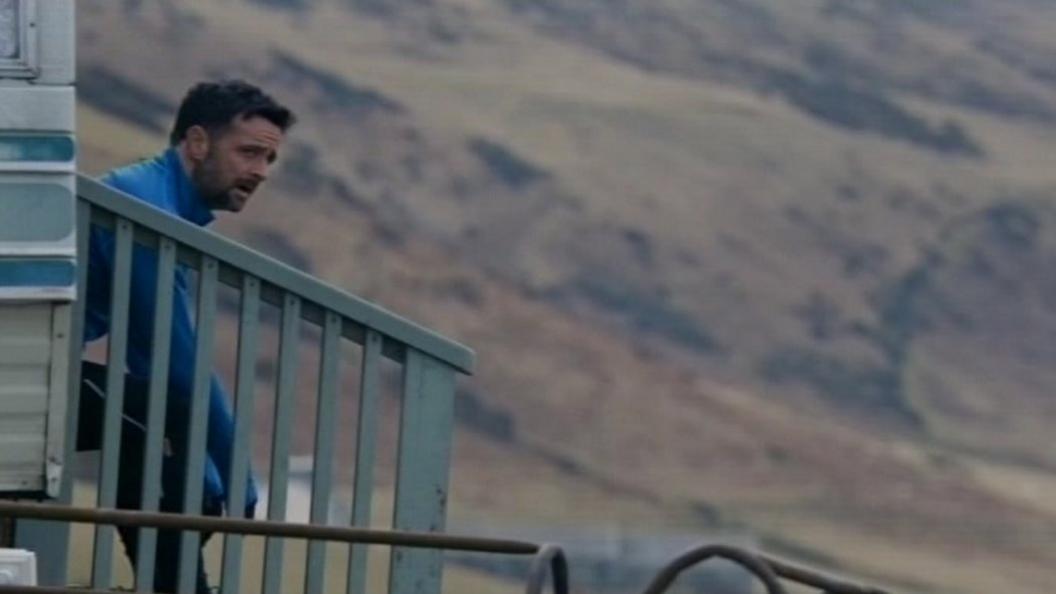Dark cloud of Brexit looms over noir series Hinterland
- Published
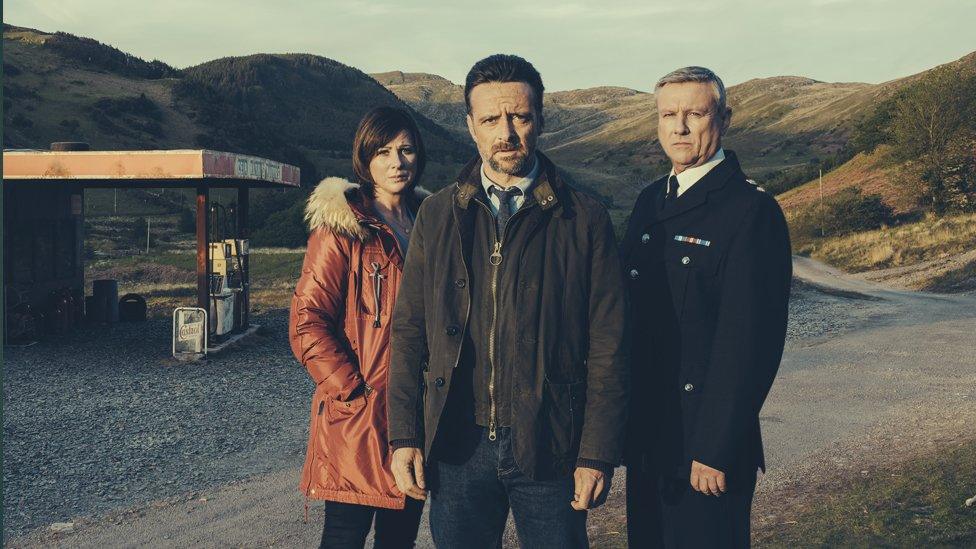
It has been sold to more than 100 countries across the world, but the producers of Hinterland say the Welsh detective noir may never have been made without EU funding.
And possible future series could be in jeopardy because of Brexit.
Made in English and Welsh, the programme follows DCI Tom Mathias solving murders in remote mid Wales.
The brooding landscapes of Ceredigion have become a main character of the programme.
Fans are in for more rolling hills and bleak, isolated settings in the third series, due to be screened at the end of the year.
But there is a lack of clarity about how Brexit will affect funding for productions such as this.
Could it be the death knell, or could Wales, like Norway and Iceland currently do, still benefit from funding outside of EU membership?
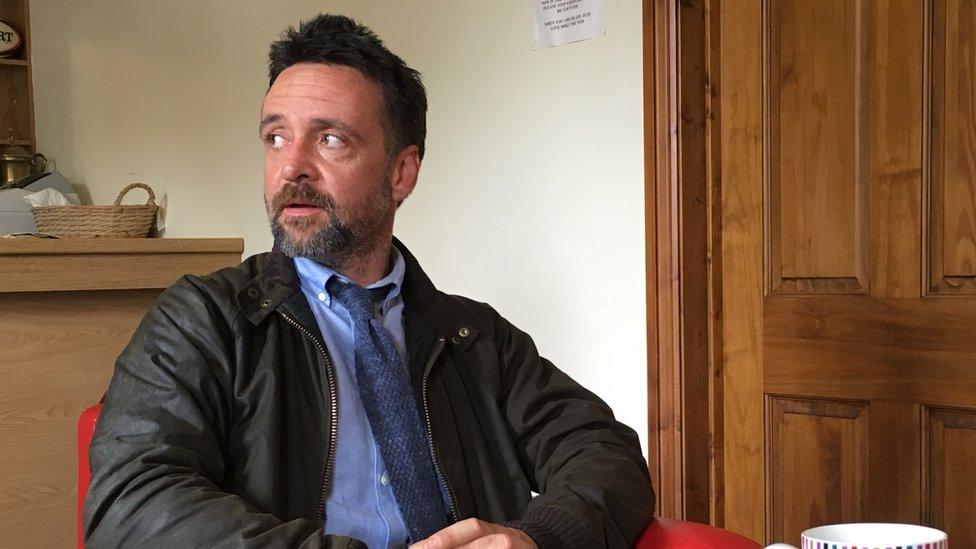
The cast have just two more weeks of filming before taking a break
Speaking on the set of the show, which is now watched around the world, cast and producers said EU funding had been "vital" to get the programme made.
Producers of the programme have received £833,200 in total from EU funding.
This included £35,800 to develop the initial idea of Hinterland, with a further £398,700 given to them under the EU MEDIA programme to produce the first series.
This covered 15% of the cost of making it.
Actor Richard Harrington, who plays DCI Mathias, said: "This show would never have happened had it not had EU money."
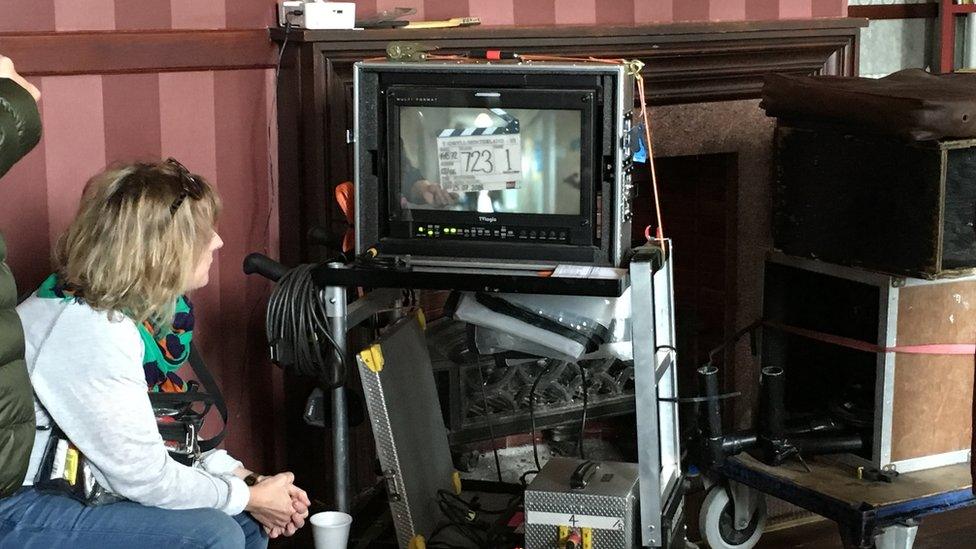
The third series of Hinterland started being filmed in January this year
And, despite its success, producers still needed an EU grant of £398,700 from Creative Europe to make a third series.
Ed Talfan, producer and co-creator of Hinterland, said: "I would say the European money was crucial on the first series. I suspect maybe on the third series because we were up and running there may have been a way of having conversations which enabled other parties to bring a little more to the table.
"But certainly with the first series everybody was maxed out and European funding was vital."
With Brexit on the horizon it is not known whether British productions will qualify for such funding, which could put the future of productions like Hinterland in jeopardy.
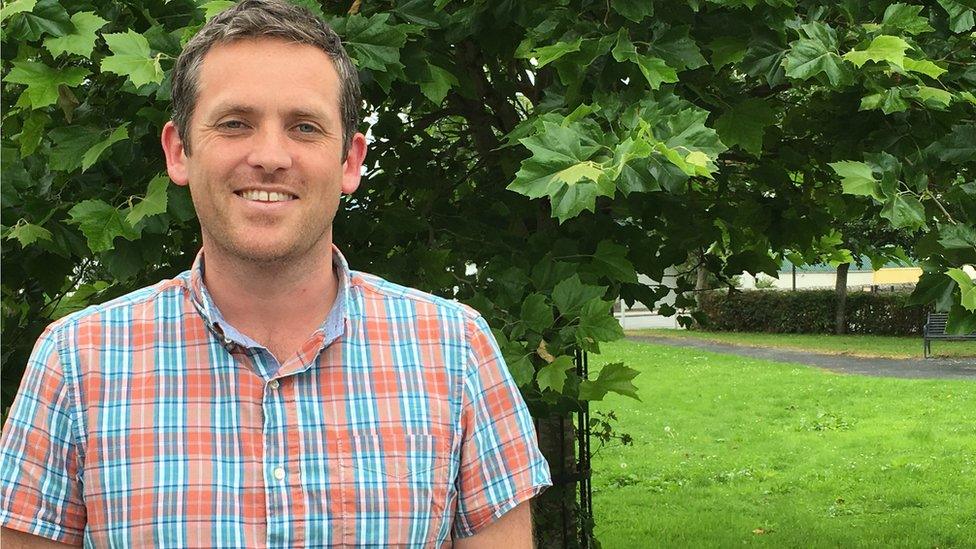
Ed Talfan said producers would consider whether to pitch another series to channels after the summer
"It doesn't make it easier," said Mr Talfan. "It is great that we have referendums and it is great that everybody expresses their own views, but my own view is that it is a very unhelpful step to be Brexiting.
"I think particularly when you are working in the nations and regions the European model made you feel like you had a friend, an additional friend, someone else you could invite to the party.
"To have the door shut on that is a real backward step.
"Unquestionably it will make life harder for producers, and particularly producers operating in areas where funds are limited. Nobody is awash with money in the nations and regions, and European funding just makes things feel that little bit more possible."

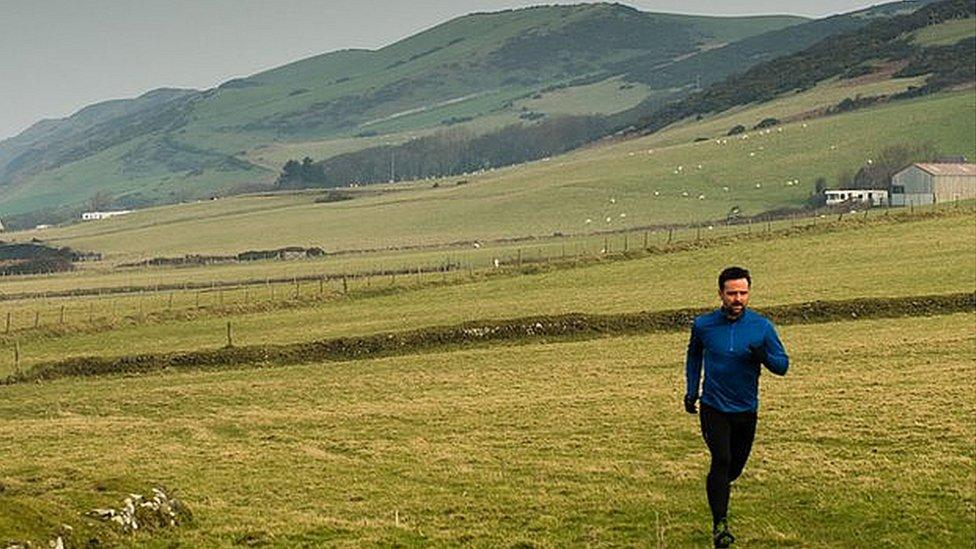
Hinterland has been sold to:
America, Australia (BBC Global), Denmark (DR), Iceland (RUV), Holland (KRO), Belgium, France (DIZALE), Finland, Norway (NRK), New Zealand.

A recent report, external by the National Assembly about what it means to Wales to leave the EU offered some hope for programmes such as Hinterland.
It pointed out that other non-EU countries, including Iceland and Norway, can receive funding as long as they put money into the scheme too.
The chairman of TAC, the trade body for independent TV production companies in Wales, Iestyn Garlick said: "It is possible we will still be able to access funds. In the first flush after Brexit it has been a bit gloom and doom, but we should be pragmatic and say, we may not want to be here, but this is where we are, let's make it work.
"Norway have done extremely well despite not being part of the EU, and Iceland too. It has never been an issue for them."
As previously mentioned Hinterland is filmed in both Welsh and English with versions in both languages sold, as well as bilingual version. It is available on Netflix in the USA, Canada and Scandinavia and in Belgium the Welsh language version was more popular than the English.
Shot in dilapidated buildings and isolated locations around Aberystwyth, Hinterland is a labour of love for cast, crew, and producers alike.
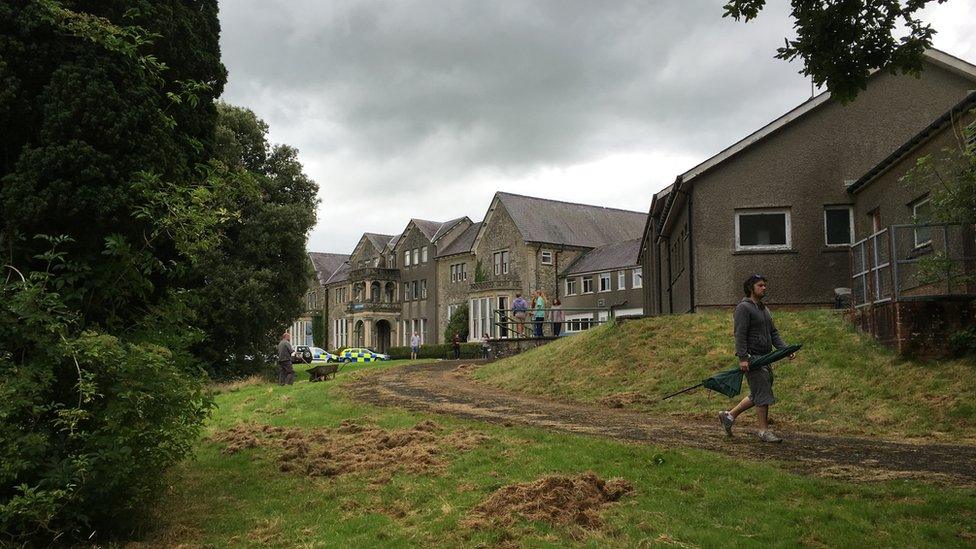
Abandoned Highmead School is among the locations used in series three of Hinterland
They film in different locations almost every day, moving forty crew, cast and extras with them, and have been shooting since January.
Their latest set was at Highmead School in Llanybydder, a former residential school and Islamic College which was for sale earlier this year.
Filming took place in the main building where mould patches spread up the walls, and dark corridors made the perfect setting for a psychiatric hospital set in the rolling hills of the Welsh countryside.
Mr Talfan said: "The countryside has genuinely been a constant inspiration and a constant joy because yes there have been times when we have had to shut the production down because of snow, and yes there have been times when we have been stuck down very narrow lanes, and the logistics can be difficult but sometimes you think I'm really lucky to come here to work."
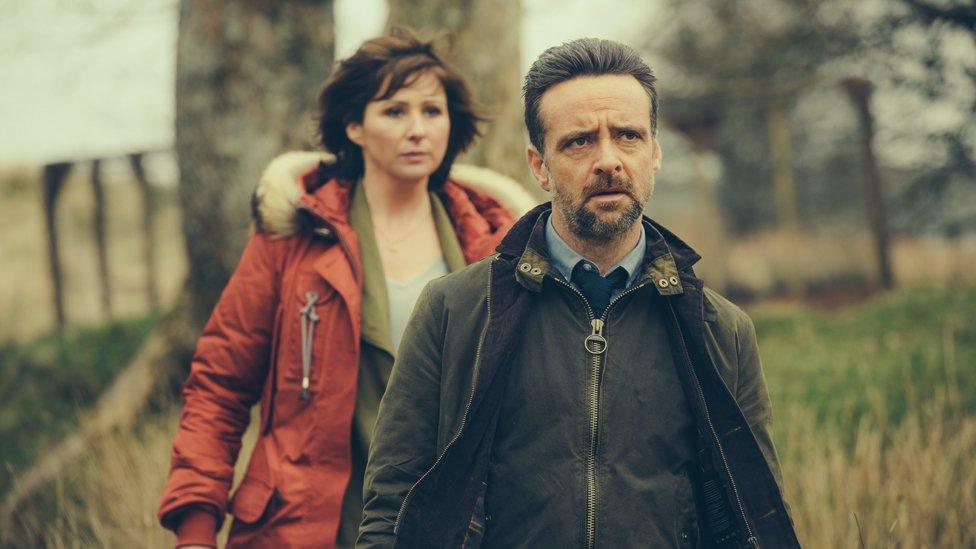
There will have been 13 episodes of 90 minutes filmed of the programme by the close of shooting in August
Mali Harries, who plays DCI Mathias' sidekick DI Mared Rhys said she hoped the door would still be open for British productions to apply for EU funding.
She said: "I just hope that Wales continues to look out, to reach out to the European Union, to the European countries so that we are still accepted as a part of the European feeling so that funding can come.
"I know a large part of the funding for this programme came from the European Union so it is scary, but hopefully we can forge a way forward that is positive and people can accept us and continue to fund us, and continue to be a part of this ongoing journey.
"I would be very sad to feel that would be the end of it and that funding would be cut and it wouldn't be made. That would be very sad."
The Welsh version of the programme Y Gwyll will be screened on S4C in October, while the English version Hinterland will be on BBC One Wales at the end of the year
- Published24 May 2014
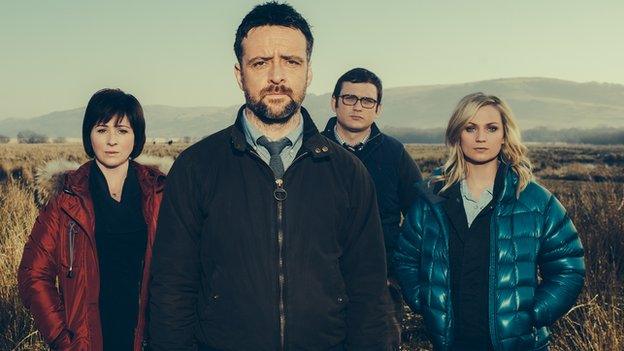
- Published4 January 2014
